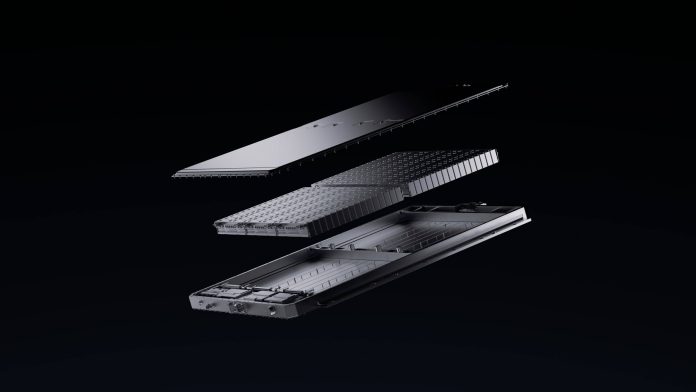With the aim of preserving a lead position in the next generation EV battery technology Beijing has set up a cross-sector national alliance to promote the development and commercialization of All-Solid-State Battery technology for the auto industry.
The consortium, called China All-Solid-State Battery Collaborative Innovation Platform (CASIP), was established in Beijing on Jan. 21 as China’s all out effort to fend off Western and other Asian nation rivals in the technology race, experts say could upend the entire auto industry.
Coordinated by state entities the common goal has brought together China’s auto industry downstream and upstream companies, like EV battery rivals BYD subsidiary FinDreams Battery, CATL and four other battery manufacturers all of them are listed among the global 10 biggest EV battery suppliers.
The consortium lists among its members the Chinese Academy of Sciences, Ministry of Industry and Information Technology, the Ministry of Science and Technology the State-owned Assets Supervision and Administration Commission of the State Council (SASAC) and automakers like, BYD, NIO and other mostly state-owned companies.
Japanese business newspaper Nikkei Asia, reporting on the news, sees the alliance unique, as it brings together sometime-rivals for the project. CATL and BYD are the biggest competitors in the field of lithium-iron phosphate (LFP) batteries and look to gain market share from each other and other Chinese manufacturers as this battery market segment is dominated by Chinese players.
The newspaper cited Chen Qingtai, head of China EV100, a think tank affiliated with the government and the industry, “Chen argued that solid-state batteries have the potential to change the balance of power in the industry”.
Solid-state batteries promise more range with higher energy density, faster charging and thanks to applying solid-electrolit gave a solution for the thermal runaway problem that could cause fire, a top concern for many EV buyers. Industry experts consider Toyota as one of the prominent developers of the technology, amassing more than 1300 patents the company anticipates full commercialization of its all-solid-state batteries by 2027-2028. In June 2023 the Japanese auto giant announced a technological breakthrough in the development of all-solid-state batteries as it had overcome a significant durability problem and worked out a mass production process one of the biggest hurdles for a full commercialization.
Developing new types of batteries requires tremendous resources in research to discover new materials and the way they impact with each other. According to experts in battery science, to find new materials researchers need to review millions of possibilities to narrow down the numbers for a few potential candidate materials that deserve to be further scrutinized. The process can be accelerated immensely by A.I.
In a speech during the ceremony establishing the CASIP Consortium “ a Tsinghua University professor specializing in automotive-related technologies” said “AI is changing the way we do materials research and development, and it will vastly accelerate the speed of all-solid-state battery R&D”.
Microsoft reported in early January it had been collaborating with a U.S. National Laboratory on discovering new materials to help reduce lithium content by 70%, meanwhile further extending capacity, in a new sodium type batteries. The research was vastly underpinned by generative AI. Regarding the speed how artificial intelligence can accelerate the work of research Jason Zander, an executive vice president at Microsoft, said “Something that could have taken years, we did in two weeks,”.
As development of next generation battery technologies require exponentially growing input and generative AI is an integral part of it, rivals have to secure the adequate AI capacity to be in the race. Currently advanced chips for AI computation are a scarce resource, not only for China, which is hit by the US technology export control curbing its access to high performance AI chips and semiconductor manufacturing equipments to produce it, but for the US too.

